The automotive world is abuzz with the rising popularity of compact SUVs, and two contenders that often come up in comparisons are the BMW X1 and the VW ID.4. Both models embody distinct philosophies, offering unique experiences packed with technology and innovation. In this article, we delve into the technical aspects and features that define these two vehicles, helping you decide which is better suited for your needs.
BMW X1 vs VW ID.4 – Which car suits you better?
Everyday use, family trips or long-distance drives – here’s where the differences show.
Discover whether BMW X1 or VW ID.4 fits your lifestyle better.
Design and Dimensions
The design philosophies of the BMW X1 and VW ID.4 reflect their branding and target audiences. The BMW X1 stands tall with sportier lines, integrating BMW's signature kidney grille and sharp LED headlights. It measures around 4500 mm in length, and its width is approximately 1845 mm, giving it a solid road presence.
On the other hand, the VW ID.4 carries a more modern aesthetic, characterized by smooth, flowing lines that impart a sense of aerodynamics. With a length of about 4584 mm and a width of 1852 mm, the ID.4 boasts a slightly larger footprint, translating into spacious cargo capacity of 543 liters.
Powertrains and Performance
The BMW X1 offers a variety of engine options, including petrol and diesel variants, as well as hybrid configurations. Engine outputs range from 136 HP to a powerful 326 HP in higher variants, providing ample acceleration. The X1's performance remains engaging, with 0-100 km/h times varying from 5.4 seconds to 9.2 seconds, depending on the model selected.
In stark contrast, the VW ID.4 is purely electric, showcasing a more sustainable approach. With power figures ranging up to 340 HP, acceleration times can be as quick as 5.4 seconds. The ID.4's electric range is impressive, peaking at 572 kilometers, making it an excellent choice for those looking for long-distance EV capabilities.
Technology and Driving Innovations
Both vehicles focus heavily on technology, but they approach it differently. The BMW X1 comes equipped with a high-resolution infotainment system and numerous driver assistance features, ensuring a balanced mix of luxury and practicality. The model's advanced features include adaptive cruise control, lane departure warnings, and a premium sound system.
On the innovation front, the VW ID.4 stands out with its focus on sustainability and smart connectivity. It incorporates the latest in electric vehicle technology, featuring a suite of driver assistance systems and an intuitive digital cockpit. Additionally, the ID.4 allows for over-the-air updates, ensuring that the vehicle is continually upgraded with the latest software improvements.
Driving Dynamics
When it comes to driving dynamics, the BMW X1 delivers a spirited experience with sharp handling, finely-tuned suspension, and an option for all-wheel drive. Employing technologies like driving mode selection, the X1 promises a connected and enjoyable drive whether you’re navigating city streets or open highways.
Conversely, the VW ID.4 emphasizes comfort and ease of use, providing a smooth ride with an electric powertrain that ensures quiet operation. The ID.4 also offers an all-wheel drive variant, giving drivers enhanced traction and control under various conditions.
Conclusion: Which One Reigns Supreme?
Choosing between the BMW X1 and VW ID.4 ultimately boils down to personal preferences. The X1 appeals to drivers who enjoy traditional gasoline engines, luxury aesthetics, and engaging driving dynamics. In contrast, the ID.4 caters to environmentally-conscious consumers seeking a fully electric option with cutting-edge technology and practicality.
In summary, both vehicles shine in their unique ways, and the decision is largely influenced by whether you prioritize performance and luxury or sustainability and innovative technology. Whichever model you lean toward, both the BMW X1 and VW ID.4 pave the way for the future of compact SUVs.
Video - VW ID.4
Here’s where it gets real: The technical differences in detail
Costs and Efficiency:
Looking at overall running costs, both models reveal some interesting differences in everyday economy.
VW ID.4 has a somewhat advantage in terms of price – it starts at 34600 £, while the BMW X1 costs 38200 £. That’s a price difference of around 3656 £.
As for range, the VW ID.4 performs decisively better – achieving up to 569 km, about 488 km more than the BMW X1.
Engine and Performance:
Power, torque and acceleration are the classic benchmarks for car enthusiasts – and here, some clear differences start to show.
When it comes to engine power, the VW ID.4 has a slight edge – offering 340 HP compared to 326 HP. That’s roughly 14 HP more horsepower.
Both models accelerate almost equally fast – 5.40 s from 0 to 100 km/h.
In terms of top speed, the BMW X1 performs noticeable better – reaching 250 km/h, while the VW ID.4 tops out at 180 km/h. The difference is around 70 km/h.
There’s also a difference in torque: VW ID.4 pulls clearly perceptible stronger with 679 Nm compared to 477 Nm. That’s about 202 Nm difference.
Space and Everyday Use:
Cabin size, boot volume and payload all play a role in everyday practicality. Here, comfort and flexibility make the difference.
Both vehicles offer seating for 5 people.
In curb weight, BMW X1 is evident lighter – 1575 kg compared to 1975 kg. The difference is around 400 kg.
In terms of boot space, the VW ID.4 offers slight more room – 543 L compared to 540 L. That’s a difference of about 3 L.
In maximum load capacity, the BMW X1 performs barely noticeable better – up to 1600 L, which is about 25 L more than the VW ID.4.
When it comes to payload, VW ID.4 minimal takes the win – 551 kg compared to 500 kg. That’s a difference of about 51 kg.
Who comes out on top?
Overall, the VW ID.4 shows itself to be is largely superior and secures the title of DriveDuel Champion.
It convinces with the more balanced overall package and proves to be the more versatile choice for everyday use.
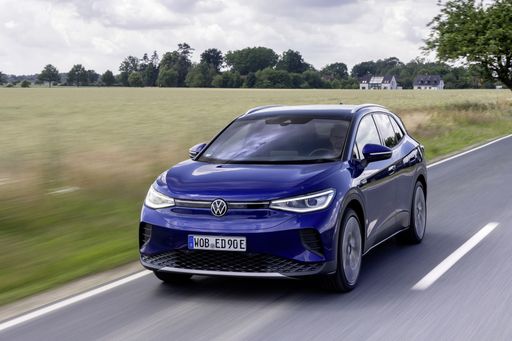 @ Volkswagen AG / VW Media
@ Volkswagen AG / VW Media
VW ID.4
BMW X1
The BMW X1 brings a premium feel to compact crossover life, wrapping practical space and agile handling into a tidy, upscale package. It’s ideal for buyers who want BMW driving dynamics without the bulk, offering everyday comfort and a few clever tricks to keep the commute interesting.
details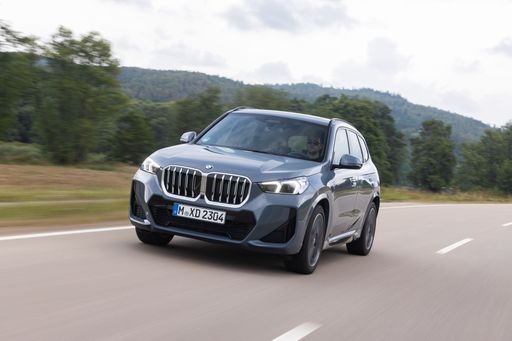 @ BMW Group Press
@ BMW Group Press
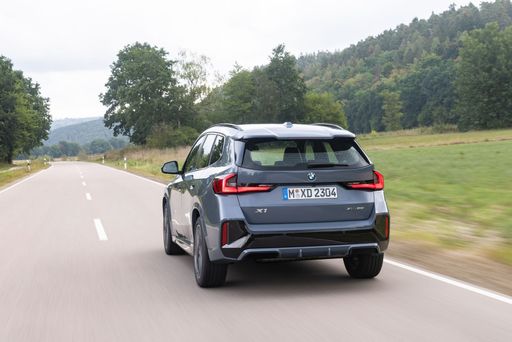 @ BMW Group Press
@ BMW Group Press
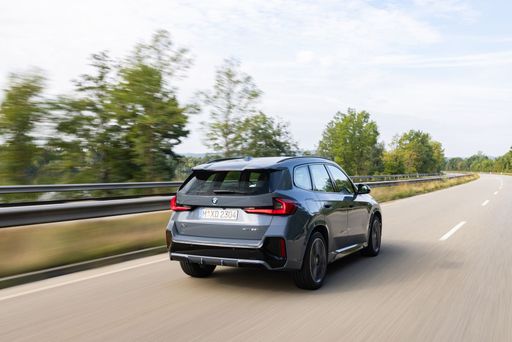 @ BMW Group Press
@ BMW Group Press
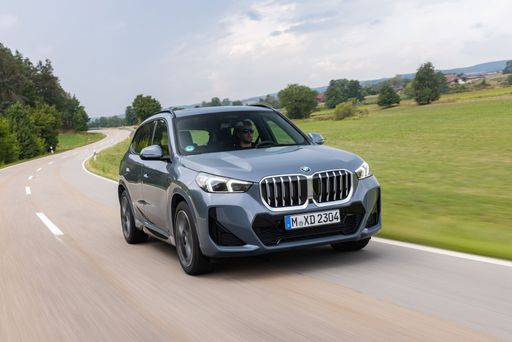 @ BMW Group Press
@ BMW Group Press
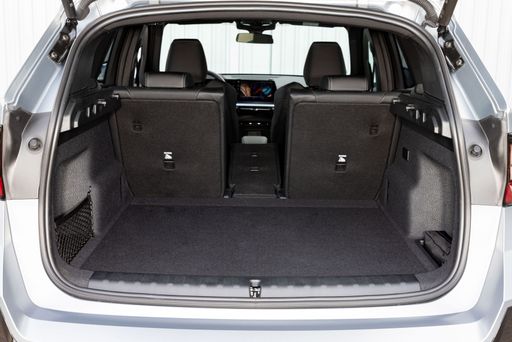 @ BMW Group Press
@ BMW Group Press
VW ID.4
The VW ID.4 is a calm, roomy electric SUV that turns everyday driving into a quietly confident experience, its practical packaging and smooth manners tailored perfectly for family life. Volkswagen's solid build and intuitive interior tech mean you get electric practicality without the sci‑fi theatrics, making the ID.4 a sensible, surprisingly likable choice for most buyers.
details @ Volkswagen AG / VW Media
@ Volkswagen AG / VW Media
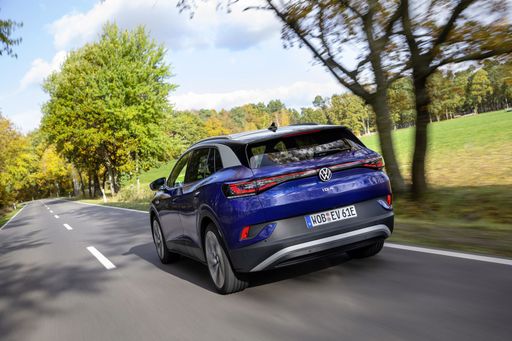 @ Volkswagen AG / VW Media
@ Volkswagen AG / VW Media
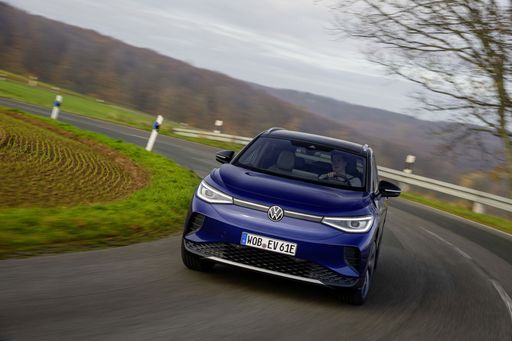 @ Volkswagen AG / VW Media
@ Volkswagen AG / VW Media
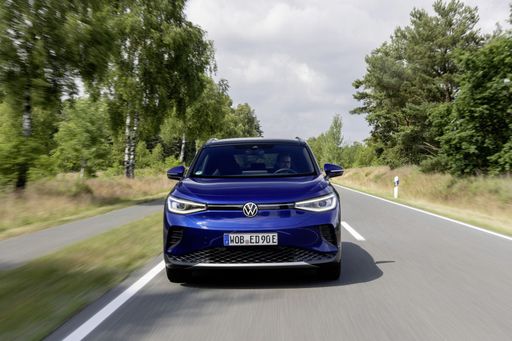 @ Volkswagen AG / VW Media
@ Volkswagen AG / VW Media
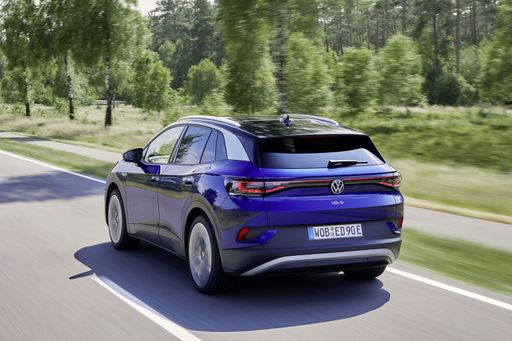 @ Volkswagen AG / VW Media
@ Volkswagen AG / VW Media
 @ Volkswagen AG / VW Media
@ Volkswagen AG / VW Media
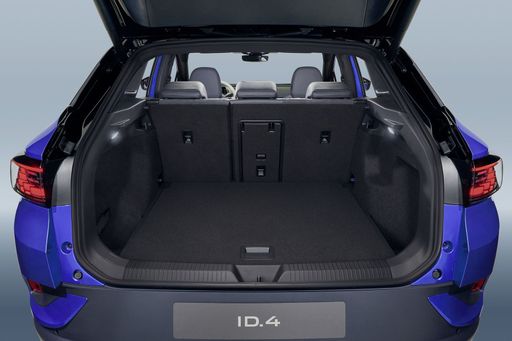 @ Volkswagen AG / VW Media
@ Volkswagen AG / VW Media
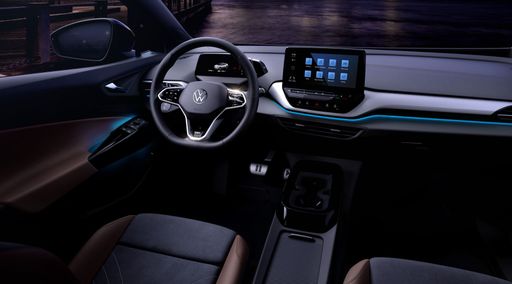 @ Volkswagen AG / VW Media
@ Volkswagen AG / VW Media
 @ BMW Group Press
@ BMW Group Press
|
 @ Volkswagen AG / VW Media
@ Volkswagen AG / VW Media
|
|
|
|
Costs and Consumption |
|
|---|---|
|
Price
38200 - 55500 £
|
Price
34600 - 47200 £
|
|
Consumption L/100km
2.5 - 7.7 L
|
Consumption L/100km
-
|
|
Consumption kWh/100km
-
|
Consumption kWh/100km
15.6 - 17 kWh
|
|
Electric Range
81 km
|
Electric Range
356 - 569 km
|
|
Battery Capacity
14.20 kWh
|
Battery Capacity
52 - 77 kWh
|
|
co2
57 - 175 g/km
|
co2
0 g/km
|
|
Fuel tank capacity
47 - 54 L
|
Fuel tank capacity
-
|
Dimensions and Body |
|
|---|---|
|
Body Type
SUV
|
Body Type
SUV
|
|
Seats
5
|
Seats
5
|
|
Doors
5
|
Doors
5
|
|
Curb weight
1575 - 1935 kg
|
Curb weight
1975 - 2248 kg
|
|
Trunk capacity
490 - 540 L
|
Trunk capacity
543 L
|
|
Length
4500 - 4505 mm
|
Length
4582 - 4584 mm
|
|
Width
1845 mm
|
Width
1852 mm
|
|
Height
1622 - 1642 mm
|
Height
1619 - 1634 mm
|
|
Max trunk capacity
1495 - 1600 L
|
Max trunk capacity
1575 L
|
|
Payload
490 - 500 kg
|
Payload
511 - 551 kg
|
Engine and Performance |
|
|---|---|
|
Engine Type
Diesel MHEV, Petrol MHEV, Petrol, Diesel, Plugin Hybrid
|
Engine Type
Electric
|
|
Transmission
Automatic
|
Transmission
Automatic
|
|
Transmission Detail
Dual-Clutch Automatic
|
Transmission Detail
Reduction Gearbox
|
|
Drive Type
Front-Wheel Drive, All-Wheel Drive
|
Drive Type
Rear-Wheel Drive, All-Wheel Drive
|
|
Power HP
136 - 326 HP
|
Power HP
170 - 340 HP
|
|
Acceleration 0-100km/h
5.4 - 9.2 s
|
Acceleration 0-100km/h
5.4 - 9 s
|
|
Max Speed
190 - 250 km/h
|
Max Speed
160 - 180 km/h
|
|
Torque
230 - 477 Nm
|
Torque
310 - 679 Nm
|
|
Number of Cylinders
3 - 4
|
Number of Cylinders
-
|
|
Power kW
100 - 240 kW
|
Power kW
125 - 250 kW
|
|
Engine capacity
1499 - 1998 cm3
|
Engine capacity
-
|
General |
|
|---|---|
|
Model Year
2024 - 2025
|
Model Year
2023 - 2025
|
|
CO2 Efficiency Class
D, E, F, B
|
CO2 Efficiency Class
A
|
|
Brand
BMW
|
Brand
VW
|
Is the BMW X1 offered with different drivetrains?
The BMW X1 is offered with Front-Wheel Drive or All-Wheel Drive.
The prices and data displayed are estimates based on German list prices and may vary by country. This information is not legally binding.
